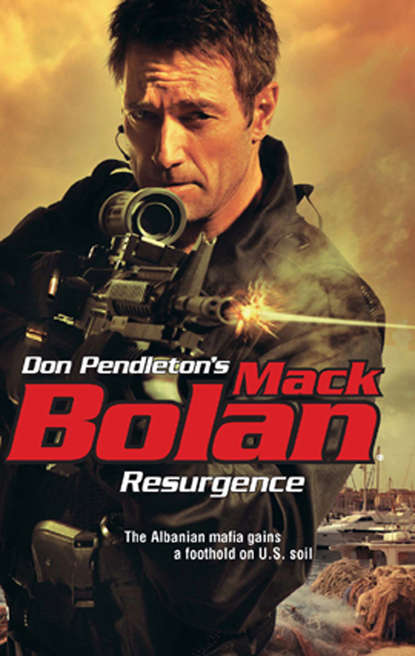По всем вопросам обращайтесь на: info@litportal.ru
(©) 2003-2024.
✖
Resurgence
Автор
Год написания книги
2019
Настройки чтения
Размер шрифта
Высота строк
Поля
“What should we do with these women?” Volkova asked.
Bolan surveyed the former prisoners and said, “They won’t fit in the Porsche.”
Volkova frowned and said, “Perhaps the barn? It seems safe from the fire.”
“Let’s check it out.”
They crossed the smoky open ground together, found the barn unlocked and pulled its broad front door aside on creaking rollers. It was relatively clean inside, a farm tractor standing in the central aisle between two rows of empty stalls. An ancient hint of animal manure lingered in the air.
“Suit you?” he asked.
“They should be safe here while they wait for the police,” Volkova said.
“Okay by me.”
“And then our work is finished here?” she asked.
“Here,” he agreed. “But I’m not finished yet.”
“Where, then?”
“I’m following the pipeline home,” Bolan explained.
“It’s a coincidence,” Volkova said. “I’m going back that way, myself.”
“Free country,” Bolan said, and stood back while she led her thirteen charges inside the barn.
CHAPTER SIX
Kombinat, Tirana, Albania
Rahim Berisha hated to receive bad news. That quality didn’t set him apart from any other person on the planet, but his temperament and reputation made his various associates leery of breaking news Berisha might not wish to hear.
Killing the messenger, for him, was more than a cliché.
Still, problems had to be recognized, examined—and, if possible, resolved. The first step toward a solution was admission that a failure had occurred.
Berisha slept till noon most days, as a concession to his night-prowling lifestyle. Most days, his business was concluding as the sun rose, driving the nocturnal folk back into hiding.
Pimps and whores. Drug addicts and compulsive gamblers. Thieves and smugglers.
All were creatures of the night. Berisha’s people.
No. They were his subjects.
In the afternoons, he dealt with daylight dwellers: politicians and police, judges and lawyers, so-called “honest” businessmen who came to him with hats in hand and open palms outstretched for money.
Everyone Berisha knew craved something. It was human nature, and the failing of his race. That understanding had already made him rich beyond his childhood’s wildest dreams.
And in the months to come, he would grow richer still.
Unless someone spoiled it for him.
That was always possible, of course. Berisha might be rich and powerful, a cunning strategist and ruthless fighter, but was not superhuman. He couldn’t be in two places simultaneously, much less several hundred places, supervising every transaction carried out by his subordinates.
A leader had to delegate authority, which meant he had to trust the people he had placed in charge of different tasks and territories. Those subordinates had to fear him more than they feared loss of cash and status. More than they feared prison.
More than they feared sudden death.
His servants had to be constantly aware that failing him, betraying him, would bring about worse punishment than anything their adversaries could devise—a screaming death that might go on for days.
Berisha understood, therefore, how Zef Kaceli felt when he came knocking on the study door and said, “There’s another call from the United States.”
Kaceli added an apology and said, “Line one, sir.”
“Thank you.”
Berisha braced himself as he picked up the telephone, depressed the lighted button for line one, and said, “Hello.”
He didn’t recognize the voice that answered him, wasn’t expected to, in fact. The caller introduced himself as Ali Dushku and the name clicked instantly. Dushku was Arben Kurti’s chief lieutenant in the far-off territory of New Jersey, U.S.A.
“What is it, Ali?” Berisha asked, taking pains to keep it casual, while he was calculating time zones. Half past noon in Tirana made it 6:30 a.m. along the eastern seaboard of America.
Dushku made a pathetic gulping sound, as people did sometimes to clear their throats before delivering dire news. And well he might, since this news was the very worst.
Arben Kurti was dead, along with Lorik Cako and at least two dozen of their soldiers. Federal agents and police were picking up the pieces, questioning whatever stragglers they could find. A second large, expensive property had been destroyed by unknown enemies who came and went as if they were invisible.
“What of the clients?” Berisha asked, all business to the bitter end.
“Missing,” Dushku replied. “Most likely dead. The house burned down. They may have been inside it.”
“And the merchandise?”
“Recovered by police.”
Of course. Perfect.
“I’m sorry,” Dushku blurted out. “Arben insisted I remain in Newark. If I’d been there, sir—”
“Then you would be a corpse,” Berisha interrupted him. “I would be learning of your death from someone else.”
Dushku fell silent then, waiting.
“Avoid contact with the police if possible,” Berisha ordered. “If they find you, tell them nothing. Since you weren’t with Kurti, you can’t tell them what became of him. As for the customers and merchandise, you know nothing.”
“Nothing. Yes, sir.”
“Give me your cell-phone number.”











